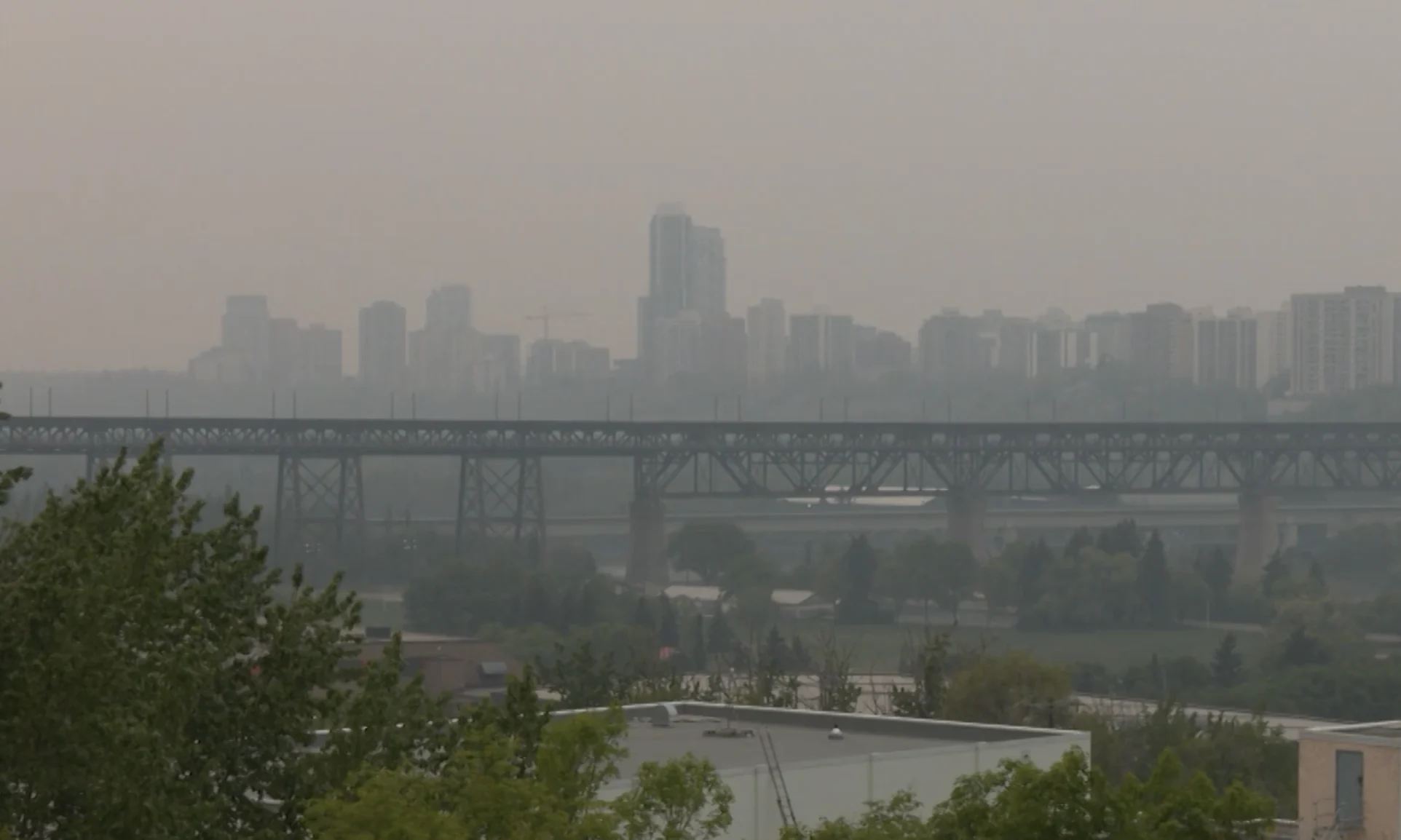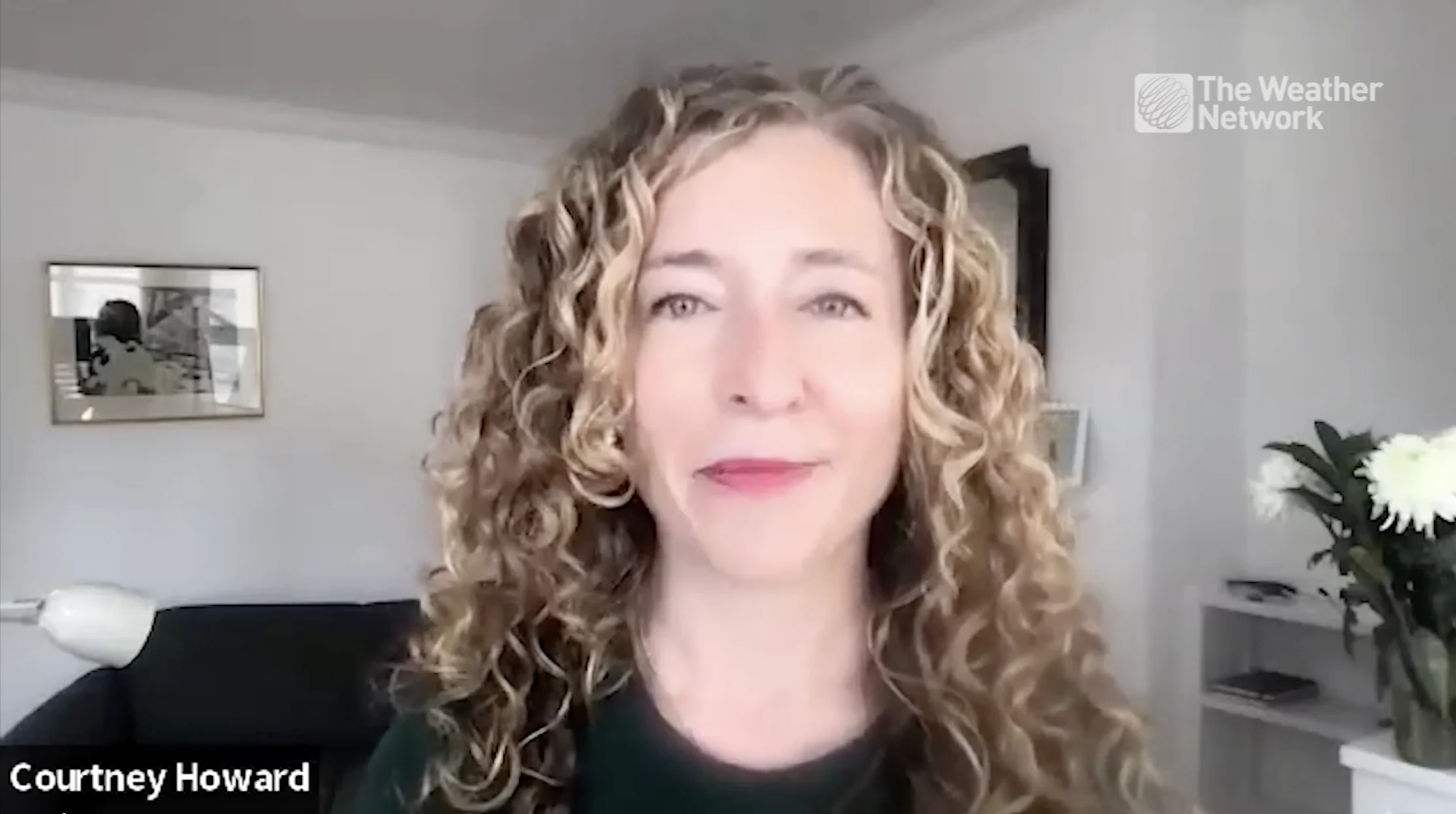
Wildfire researcher issues rec centre challenge for smoky communities
The toll that evacuations and smoke exposure take on our mental health can be profound, but as The Weather Network's Connor O'Donovan reports, there's a simple step communities can take to help.
Visit The Weather Network's wildfire hub to keep up with the latest on the active start to wildfire season across Canada.
Dr. Courtney Howard has a challenge for leaders in communities impacted by wildfires this summer.
The physician and wildfire researcher is calling on officials to grant free access to community recreational centres during wildfire events.
Whether a community plays host to evacuees from areas immediately threatened by fire or opens up a safe indoor space to residents suffering from poor, smoky air, Howard says access can be both mentally and physically beneficial.
"Who’s going to be the first to open your recreation facilities for free?" she asked in an interview with The Weather Network.
"That’s really something that can help your communities achieve mental and physical health wellness during these smoky periods. So, let’s make it a competition. Who’s going to be the first?"

Physician and wildfire researcher, Dr. Courtney Howard, challenges community leaders to open their recreation centres for free during periods of heavy smoke. (The Weather Network).
According to Howard, wildfire evacuations have been linked with anxiety, depression, PTSD, sleep disturbances, and substance use problems. Studies have shown the effects can last a year or longer, she says. And, following repeat evacuations, the effects can be additive.
Meanwhile, she says lengthy periods under dangerously thick wildfire smoke can lead to anxiety and irritability.
She references the "summer of smoke" in Yellowknife in 2014, during which the city was blanketed in smoke for a cumulative 2.5 months with multiple wildfires burning in all directions. A study consisting of 30 community-based interviews conducted that summer revealed reports of people feeling anxiety and irritability.
WATCH: Tips to help protect yourself from wildfire smoke
Howard believes, though, that there is a simple way community leaders can help people cope with these problems.
About halfway through the summer, the city of Yellowknife opened its recreational centres, allowing everyone to experience clean air quality, while getting exercise in and socializing with neighbours.
She says it created a "wonderful" benefit for affected Yellowknife residents.
"When we stay inside and we’re not active, not only do we not get that cooped-up cabin fever feeling, but we’re losing the treatment benefit, particularly exercise outside," she explained.
"There’s a whole other evidence base that’s growing around the health benefits of nature. That tends to decrease our stress levels and improve our reported sense of wellbeing."
Howard calls wildfire smoke events a "triple threat" of cabin fever, decreased physical activity, and decreased connection to nature.
She adds that studies have shown just half an hour of physical activity per day can yield benefits, and she says she’s even written exercise prescriptions in emergency rooms in the past for everything from high blood pressure and diabetes to depression.











